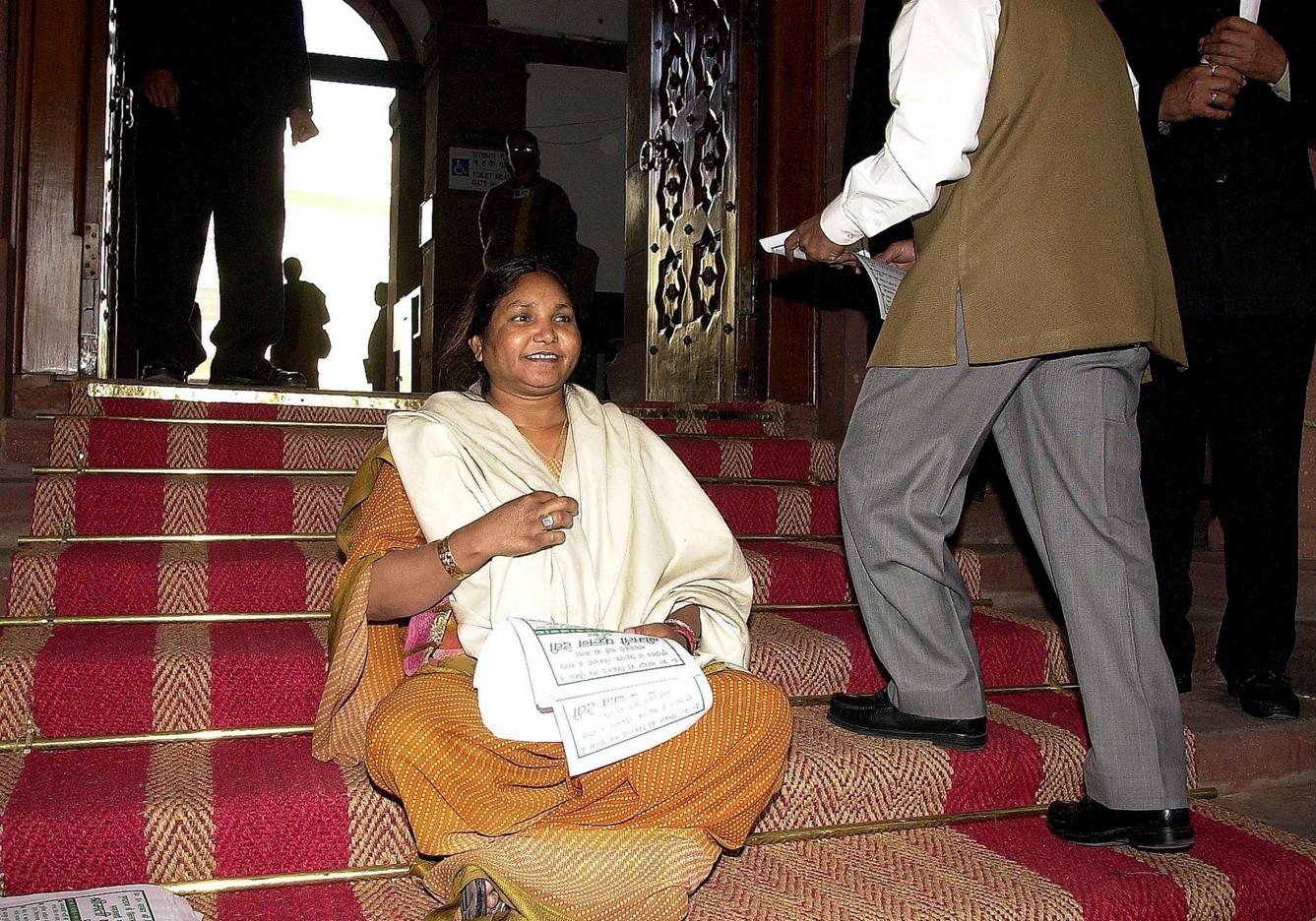North India has long been known for its bold women, examples of which include the legendary dacoit Phoolan Devi of yesteryear and the recently-revealed underworld gangster Anu.
According to the report of the Russian magazine ‘Russia Today’, on June 18, 24-year-old Anu used social media to invite and kill a man named Aman Jon at the ‘Burger King’ restaurant in Rajouri Garden.
After a few minutes of chatting between them in the restaurant, some people entered and sat near the couple. He then took out his pistol and fired at Aman. He ran to the counter and hid by jumping over it, but the shooters followed him and peppered him with bullets. Meanwhile, about three dozen onlookers were watching the scene at the Burger King.
Infamous gangster Neeraj Bwana’s accomplice Himanshu Bhau, who is imprisoned in Delhi’s Tihar Jail, has claimed responsibility for the murder. But it was Anu who grabbed the attention of the media.
Dubbed as ‘Lady Dawn’ in the local media, she has been accused of being a close aide of Himanshu Bhau who lured Amanjun into the trap through a ‘honey trap’.
Another such sensation took place in January when Divya Pahuja, former model and gangster Sandeep Gandoli’s ex-girlfriend, was shot in the head at a hotel in Gurgaon, a suburb of Delhi. 27-year-old Divya’s body was found in a canal 11 days later.
Divya was also accused of luring her boyfriend at the age of 18 through a ‘honey trap’ who was shot dead by the Mumbai police in an alleged fake encounter. Divya spent seven years in jail before getting bail last year.
In March this year, Anuradha Chaudhary aka ‘Revolver Rani’ made headlines by marrying a jailed gangster wearing a pink saree. Police forces were guarding the wedding.
But why are women becoming part of the underworld?
The current trend of women’s involvement in these heinous crimes started in May 2022 with the murder of renowned Punjabi singer Sidhu Moosewala. It was allegedly carried out by the Lawrence Bishnoi gang.
Musawala has been somewhat controversial for his songs and in 2020 was accused of promoting gun culture in a song.
Going further back in time, Sonu Punjaban, a woman who trafficked little girls for sex, was sentenced to 24 years in prison. A movie has also been made in Bollywood inspired by the character of this gangster.
And who does not know Phoolan Devi. She was a victim of domestic violence, rape and public humiliation. She became a bandit to avenge the abuses that terrorized many northern states.
Phalan Devi was born in a low caste family in a remote village in Uttar Pradesh. He was charged with 48 major crimes and served 11 years in prison without trial. After her release, she entered politics and became a member of Parliament and became a prominent leader for India’s lower castes. He was murdered outside his house in Delhi in 2001.
In March this year, police in Chandigarh foiled a plot to target an arch-rival of the Bishnoi gang and arrested Pooja Sharma and two of her associates.
During interrogation, Pooja reveals that she joined the gang because she was infatuated with Bishnoi’s personality and was in love with his close associate.
Police told ‘Russia Today’ that these gangs try to recruit young women interested in crime, which is not limited to espionage or honey traps. Some are even ordered to fire at times.
This section contains related reference points (Related Nodes field).
India’s patriarchal system is the main reason for this
Devianjali V is a forensic psychiatrist from Lucknow, the capital of Uttar Pradesh, who believes that the country’s patriarchy is causing women to choose criminal activities. In a patriarchal and male-dominated family structure, a woman is dependent on her husband, her father and father-in-law, and even her sons.
Devanjali told Russia Today: ‘We know that there are a lot of crimes against women because they are vulnerable. Women have been victims of patriarchy for centuries and feel constantly pushed down.’
According to the Index 2023 released by the US-based Georgetown Institute for Women, Peace and Security, India ranks 128th out of 177 countries in terms of women’s inclusion in society, justice and security.
According to the latest data from the National Crime Records Bureau of India, crime rate against women 2018 and facing similar abuse, Shanta Devi Patkar became a part of the crime world. Nicknamed the ‘Drug Queen of Mumbai’, Natasha made drug peddling a source of income.
Devanjali believes that most crimes seem logical to people who are trying to find a better life or escape from a bad situation.
‘They believe it is legitimate. It can be a strong emotion like love.’
Role of women in gangster groups
Former Tihar Jail inmate Saima (name changed to conceal identity) told Russia Today that women involved in organized crime or gangster gangs are considered ‘expendables’.
He said that the men who lead the gangs use only male gangsters for their big crimes but women are hired for small jobs.
According to him: ‘Women are used like disposables. They basically act as pawns and are often made scapegoats.
Reasons
Saima said that because money is easily and quickly made in this sector, women are either unaware of the consequences or are assured that they will be protected if something happens. It rarely happens.
Ravinder B. Vaidya, a social activist who works for prisoners, said that women gangsters are more common in big cities.
According to him: ‘The pattern of crime varies by geographical area and there is a big difference between crime in big cities and small towns in rural India.’
Most of the village women prisoners that Vaidya’s organization sees have killed their husbands in response to domestic violence. But women involved in organized crime or gangs in cities commit crimes for other reasons.
He said that this can also be done for gaining power. Crime is also a source of power in our society and men believe that women should not have that power.’
Saima says that she has known women in jail who had nothing to do with the world of crime before marriage but got involved after marriage due to violence and other reasons.













